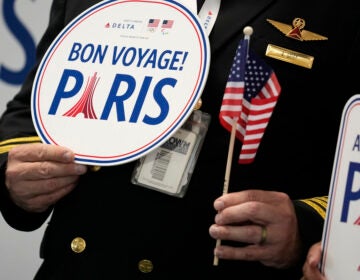Jackie Robinson and the civil rights movement
ListenGuests: Chris Lamb and Michael Long
On April 15, 1947, when Jackie Robinson took the field for the Brooklyn Dodgers against the Boston Braves on opening day of Major League Baseball, marriage between blacks and whites in most Southern states was illegal, schools had not yet been integrated and there still remained many restrictions preventing African Americans from voting. During the six harrowing and turbulent weeks of spring training in Florida leading up to his debut in the majors, Robinson learned first hand what life for blacks was like in the segregated South. He was prohibited from staying in hotels with his teammates, his life was threatened and some teams refused to play against him. But one year later at Ebbets Field in Brooklyn, the civil rights movement in America took a leap forward, baseball was changed forever, and blacks across the country began to see some hope for their future. During his career in baseball and after he retired from the game, Robinson remained an active and tireless leader in the civil rights movement, paving the way for the next generation of African American trailblazers. This morning, in advance of the opening this weekend of the new movie “42,” we’ve invited historians CHRIS LAMB, author of Blackout: The Story of Jackie Robinson’s First Spring Training and MICHAEL LONG, editor of Beyond Home Plate: Jackie Robinson on Life after Baseball, to join us to talk about Robinson’s legacy on and off the field.
AP Photo, File
WHYY is your source for fact-based, in-depth journalism and information. As a nonprofit organization, we rely on financial support from readers like you. Please give today.





